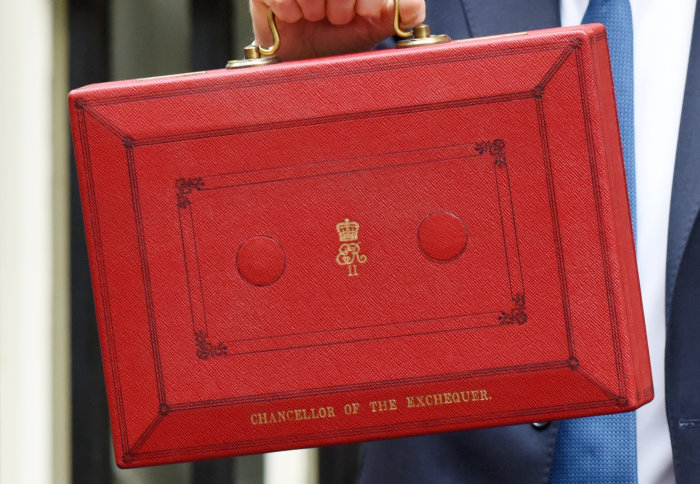Back in March you called this the greatest revolution in pensions since 1970
And it certainly seems to be turning out that way. To remind you, in the March Budget George Osborne proposed a number of significant changes to pension rules. Most of these were to come into effect from April 2015. We sent you a summary at that time.
Since then there has been a fair amount of clarification and even some new changes (such as the ‘abolition of the pension death tax’ in Osborne’s recent Tory Party Conference speech).
We’d therefore like to update you on how these new rules are shaping up, and how it might affect our clients.
Our overriding message continues to be
- that pensions are still be the most tax efficient way of providing for a basic level of income in retirement
- that there is nothing that requires urgent action, so we’ll discuss how these changes might specifically affect you in our next review meeting
So what’s the latest thinking on these changes?
To remind you, George’s general idea is to give anyone over the age of 55 much greater flexibility in accessing their pension funds. Some commentators saw this as the death of annuities.
Sorry to be a bit slow here, but remind me what an annuity is?
After the age of 55 you can access your pension (probably after the 25% tax free cash has been taken). Prior to 1996 the only option was to hand all the money to an insurance company who then pay you a guaranteed income for life. It may rise with inflation, it may continue on death, although these options reduce the initial amount of income paid.
Sounds great. I’ll take one.
Not so fast! For a start annuity rates are affect by interest rates, therefore the amount of income bought now, which will last the rest of your life, is at an historic low. Plus, on death the insurance company keeps the pot.
What! That’s an outrage! Why doesn’t someone do something!
They did. Since 1996 Drawdown (a generic name for many different sets of rules) allows the fund to remain invested and pay out an income. But the maximum amount of income has, until now, been capped in order that pension pots are not depleted over time.
Now George Osborne is proposing to remove the cap from April 2015. This will be known as Flexi-Access Drawdown.
So I can take out my entire pension in one go? Happy days!
Not necessarily. Tax will need to be paid at the marginal rate. Also, most people are going to need an income in retirement, which is, at the end of the day, the reason that pensions exist. Although the flexibility is welcome for some (for example taking out higher amounts in the early years of retirement when still active and healthy) for most the extra income tax and the need for long term income will make it rather irrelevant.
My mate says he’s going to cash in his £200k pension and get a buy to let property then live off the income
He’s not the only one. However, from a purely tax perspective, this doesn’t really stack up. He’d be taking it out of the pension where growth is (virtually) tax free, paying income tax on 75% of the pot, much of it at 40%. He’ll then face possible stamp duty on the purchase price and capital gains tax on the growth in any value of the property. He’ll pay income tax a second time on the net rental income. Finally the asset will be in his estate for inheritance tax purposes.
It sounds like this flexibility is not it’s cracked up to be then
The answer, as so often is the case, is that it depends on circumstances. For some clients (typically those who are reliant upon their pension income in retirement) the changes might not make much difference. For clients who have greater flexibility (larger pension pots, defined benefit pensions, ongoing income from other sources) there may well be tax planning opportunities, for example reducing tax on income by using the pension commencement lump sum.
The what?
The pension commencement lump sum. It used to be called the tax free cash (usually 25% of the value of the fund), but HMRC changed the name.
So what’s all this ‘Pension Death Tax’ from Georgie’s speech you mentioned earlier?
The current rules say that upon death BEFORE taking benefits, the whole fund can be passed down to the next of kin without any tax – so no change here (we can also use a Bypass Trust for further tax savings). Once benefits have been taken, however, there is a 55% tax charge.
55%? But that’s more than the 40% inheritance tax rate!
The idea was that HMRC is simply taking back tax relief on contributions given during lifetime. Remember, as far as HMRC are concerned, the sole purpose of a pension is for income in retirement. They don’t like the idea of pensions being used as inheritance tax planning tool.
That’s the current rules. What is Georgie proposing?
The plan is that after April 2015, the 55% rate will be changed to zero (before the age of 75, after which income tax will be payable by the recipient).
So if I die between taking benefits and the age of 75, my kids can have the whole pot tax free?
Yes, this is the big change. Although, depending on circumstances (for example the financial position of a surviving spouse) we may well have some other tax planning ideas.
That sounds great. So does all this mean I should put all my money into pensions from now on?
No. For a start you only get tax relief on the first £40,000 contribution (there may some unused amounts from previous years). You can pay in more, but you don’t get tax relief. And any large amounts in the 2 years before death may be queried by HMRC from an inheritance tax avoidance perspective.
There is also a concern about politicians’ predilection for using pension legislation to win votes. There is no way of knowing if these current rules will be the ones in place when you come to take your pension benefits. Tax relief on contributions and the tax free growth can’t really be clawed back. But the rate of tax on death has been reduced from 55% to 0%. It’s perfectly possible for a future Government (of any hue) to put it back up again.
We’ll therefore sign off with a repeat of our core message about pensions; pensions should be used as a source of subsistence income in retirement, as part of a wider plan involving other types of investment vehicles.








